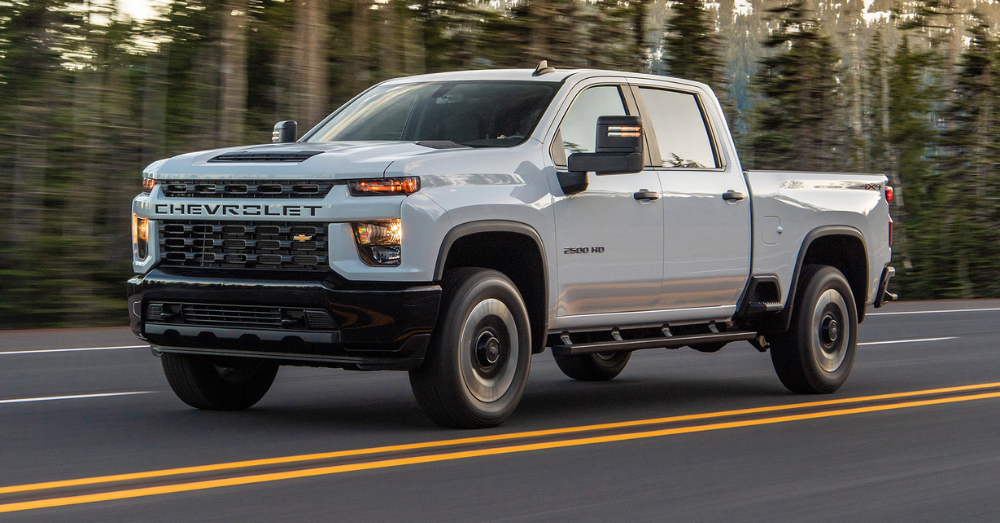You Might Be Surprised To Learn The Truth
Chances are that if you’ve been considering buying a new or used truck, you see engine specs regarding the pickup’s horsepower. Clearly, this is an important number, but have you ever stopped to think why it matters that the newest Chevrolet Silverado 2500HD’s standard engine produces 401 horsepower?
Here’s what you need to know about horsepower and why it matters on your next truck purchase.
The History of Horsepower
Back in the 18th century, when steam engines first hit the scene, not everyone was onboard with outfitting their factories with this new tech. The Scottish inventor James Watt was trying to build interest in his newly designed engine. The challenge was that no one really knew how to explain the benefits of this innovative engine.
Watt started to notice that various factories and mills used horses to push, pull, and lift heavy loads on the job site. In a mill, for example, horses would walk around a shaft attached by radial arms. He took note that horses would walk around a circle 24 feet in diameter 144 times per hour. He calculated this work to say that each horse pushed with a force of 180 lbs.
Horsepower was then determined to be the equivalent of one horse doing 33,000 ft-lb of work in a single minute. This would be like a single horse lifting a 33-lb bucket of rocks out of a 1,000-ft deep mine in one minute.
Once Watt could speak in the language people understood, we were able to better describe how much work his steam engine would do. It worked. Of course, steam engines and horses walking in circles doesn’t explain how horsepower works in a Chevrolet Silverado 2500HD.
Horsepower vs. Torque
Another unit of measurement used to promote trucks. That same Chevrolet Silverado 2500HD with a standard motor produces 464 lb-ft of torque. It’s easy to get these two units confused. Think of it this way; horsepower measures the rate at which work is done. Torque is a measurement of the amount of force needed to do the work.
An engine with a higher horsepower can sustain a higher rate of work once it’s in motion. Torque, on the other hand, is the driving force behind getting your vehicle moving quickly.
An engine with high horsepower but low torque will feel sluggish and less powerful off the line than engines that have lower hp and higher torque. Once your truck is at a certain speed, higher hp will help you accelerate faster.
Why You Should Care About Horsepower
The chances are that if you’re buying a truck, you have some kind of work to do: hauling firewood, towing a trailer, exploring off-road, or something else. Horsepower is related directly to performance. A truck with more horsepower and higher torque will accelerate faster than other engines, which plays a huge role when you have a heavy payload. Of course, lower hp and torque often produce greater fuel economy with its slower acceleration.
The Choice is Yours
If you’re still not sure what horses have to do with trucks, just remember that the higher the number, the better the truck is for hauling and towing. A Chevrolet Silverado 2500HD with the optional diesel engine, for example, offers 445 hp and 910 lb-ft of torque, one of the most muscular performance engines on the market. If you’re only planning on buying a truck for its stylish looks and status-raising abilities, you can get away with lower numbers. The choice is up to you.
Find one at your local Chevrolet dealer today!
This post may contain affiliate links. Meaning a commission is given should you decide to make a purchase through these links, at no cost to you. All products shown are researched and tested to give an accurate review for you.

